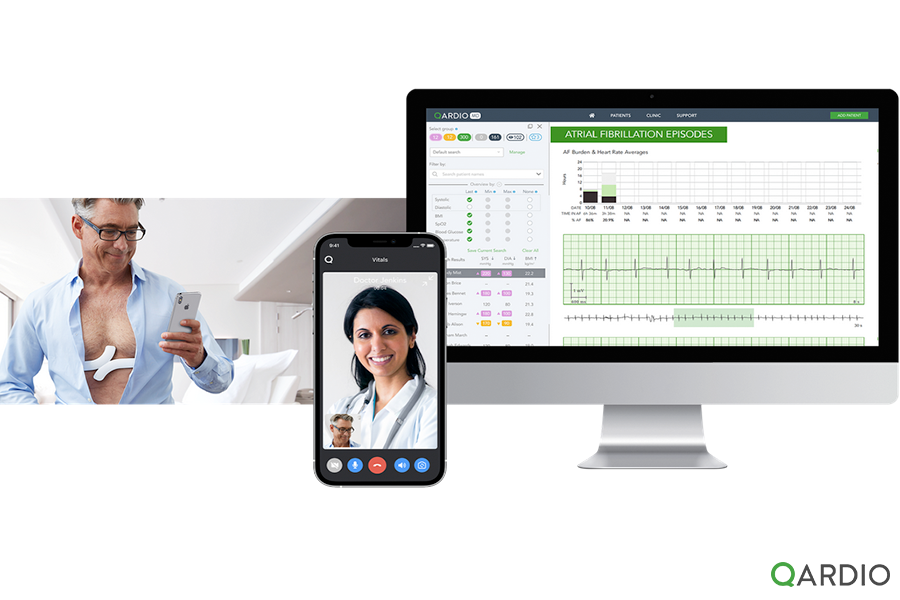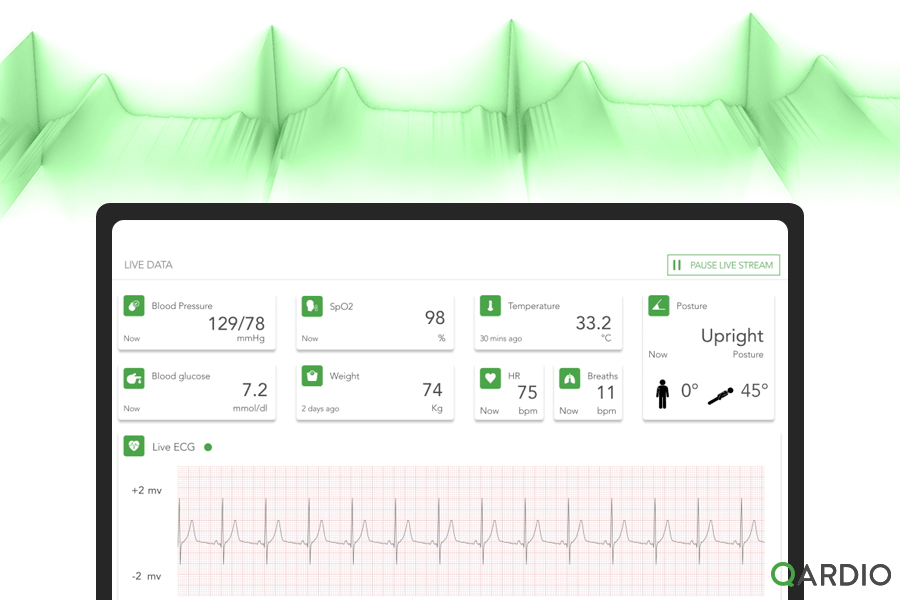Electrocardiogram (ECG) monitoring is used to record electrical signals in the heart. One type of ECG monitoring is a Holter monitor. It is used to detect heart problems such as heart disease, heart attack, an enlarged heart, or any abnormal heart rhythms that may cause heart failure. Increasingly, remote ECG monitoring is used by clinics in the United States as a cost-effective solution to review a patient’s heart activity without their need to travel to a clinic.
We spoke with Reda Elmardi, registered dietician and certified nutritionist, as well as Dr. Wolfram Schwarz, to understand the benefits of remote ECG monitoring.
Detect cardiac events early
Early detection of cardiac events can save lives. As Elmardi explains, “many people do not realize that symptoms such as chest pain, shortness of breath, dizziness or fainting, are warning signs of a serious condition until it’s too late. By using remote ECG monitoring, patients can receive immediate treatment and return to normal activities faster.”
Reduce the need for hospitalization
The ability to detect cardiac events earlier leads to a reduction in unnecessary hospitalizations, as the patient can receive treatment from home. As Dr. Schwarz explains, “Receiving data by the doctor remotely at any moment means that the doctor can know when there’s irregular activity and even anticipate the need for treatment. This has dropped the number of hospitalizations in patients with atrial arrhythmia and reduced the time it takes to notice that the patient needs hospitalization.” In fact, a recent study showed that remote ECG monitoring led to a “significant reduction in atrial fibrillation-related visits to clinic or emergency department in the post-ablation period.”
Earn reimbursements for remote ECG monitoring
In addition to early detection and treatment, providers in the United States can earn reimbursements for remote ECG monitoring with Current Procedural Technology (CPT) codes. To record and review analysis using a Holter monitor for up to 48 hours, providers can bill for the Category III CPT code 93224. Moreover, for physician review and interpretation of an external ECG recording using a Holter monitor, providers can bill for Category III CPT code 93227. Reimbursements allow providers to earn money for the care they are already providing.
QardioCore – Wireless ECG monitor system
QardioCore is a wireless medical grade ambulatory ECG monitor system that can identify atrial fibrillation and other arrhythmias and help to manage them. Read how QardioCore helped with Leo’s heart arrhythmias here. Unlike traditional Holter monitors, no wires, gels, or patches are required. QardioCore is 100% deployed remotely and the ECG results are instantly sent to Qardio’s remote patient monitoring platform, QardioMD, so doctors can analyze the data and intervene where necessary. What’s more, QardioMD automates time tracking, so providers can benefit from the reimbursements available for remote ECG monitoring with Holter monitors, in particular CPT codes 93224 and 93227.
To learn more about how remote ECG monitoring can add value to your practice, speak to a product expert here.
—
Reda Elmardi is a Registered Dietician, certified nutritionist, Certified Strength, and Conditioning Specialist Trainer, and owner of thegymgoat.com.
Dr. Wolfram Schwarz specializes in Medicine, Traditional Chinese Medicine, Acupuncture, and Acupressure. He is also Co-Founder of Meduni an authoritative German platform that provides evidence-based medical information.
Sources
Mayo Clinic
WebMD
CMS.gov


